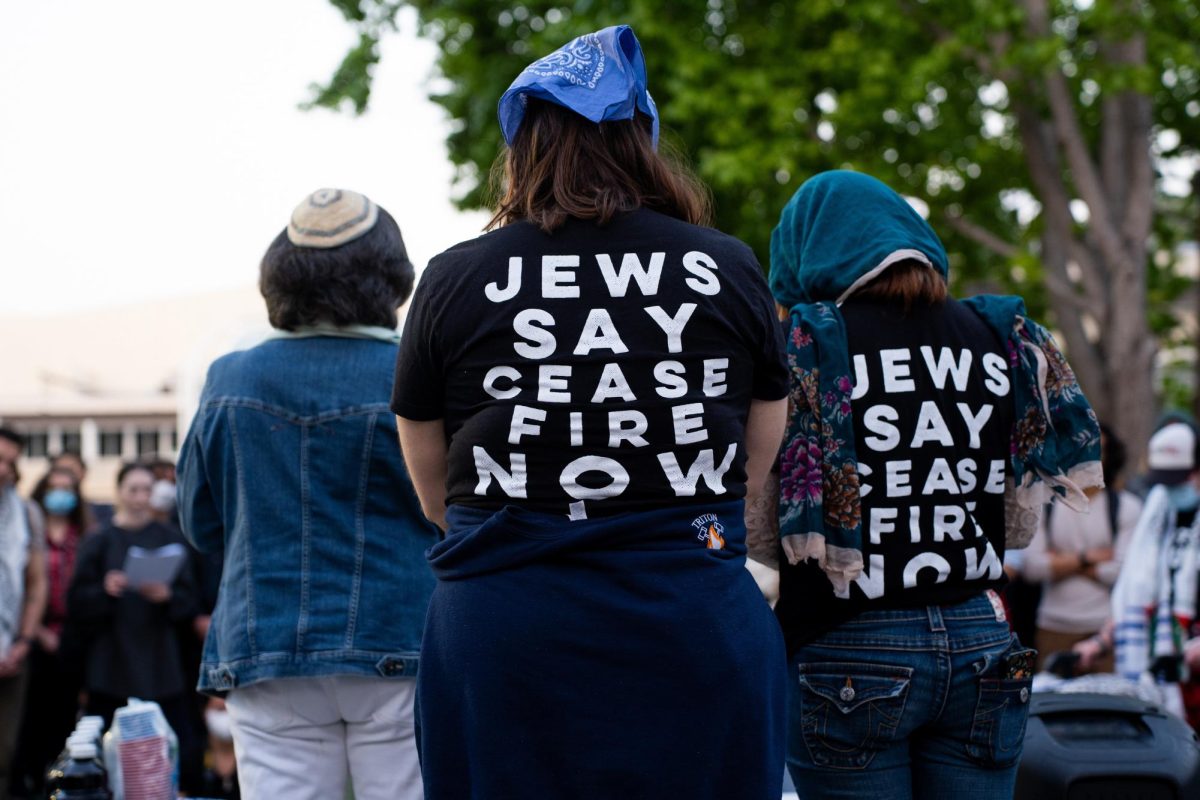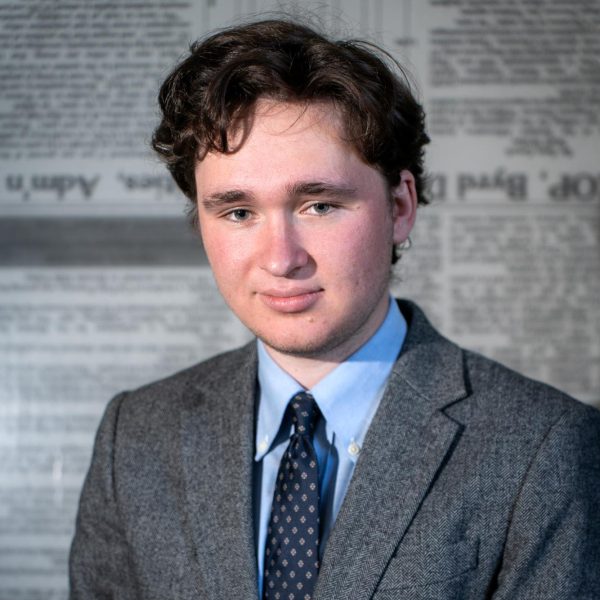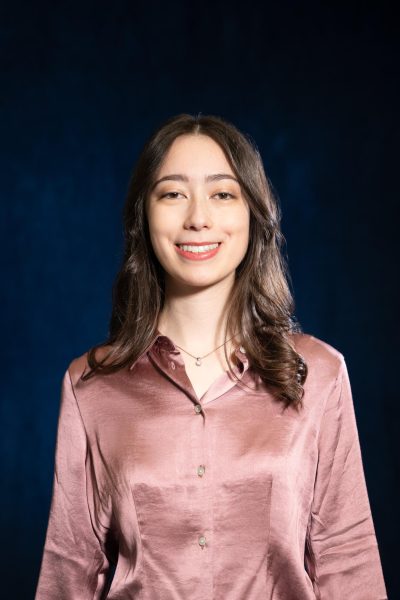Editor’s note: Partial anonymity was granted to the interviewee by request due to safety concerns.
Campus protests against Israel’s genocide in Gaza have rapidly taken on the character of a nationwide student movement on a scale not seen in decades. Despite widespread claims that the protests are motivated or influenced by antisemitism, many Jewish students have taken on a unique role in organizing the demonstrations and encampments that have spread across the country in recent weeks. UC San Diego is no exception. Jewish Voices for Peace at UCSD, an organization of anti-Zionist Jewish students, was founded this year and has since become a pillar of pro-Palestinian activism on campus.
JVP’s organizers reject the conflation of Israel and Judaism, draw a firm distinction between anti-Zionism and antisemitism, and call on the university to divest from Israeli apartheid and genocide. JVP members state that their Jewish values, as well as the Jewish people’s long history of oppression and discrimination, compel them to support the Palestinian cause, not despite their Jewish heritage but because of it.
UCSD’s JVP is part of the larger national Jewish Voice for Peace organization whose activities are not confined to college campuses. The organization describes itself as the largest progressive pro-Palestine Jewish group in the United States and supports the Boycott, Divestment, and Sanctions movement to end American support for Israel. JVP was founded in 1996 and its leadership history includes prominent figures such as linguist and activist Noam Chomsky, writer Naomi Klein, and actor Wallace Shawn.
There are JVP chapters active in 33 states, in cities and towns across the country, and at both private and public universities. The UC system is home to a number of JVP chapters; UCLA’s JVP was one of the organizing forces behind the university’s Gaza Solidarity Encampment, which was forcibly broken up by police on the night of May 1 to May 2.
Hillel International estimates that there are roughly 800 Jewish students at UCSD, making up approximately 2.5% of the undergraduate student body. These students hold a wide variety of views on the Israel-Palestine conflict. Surveys show that young American Jews today are substantially more likely to hold anti-Zionist views than previous generations; for example, a Pew Research poll found that only 45% of Jews aged 18 to 33 have a positive view of the Israeli government. This is part of a broader statistical trend of young people in the United States being far more supportive of the Palestinian cause than previous generations.
As a new student organization, JVP grew out of the protest movements that have taken place on campus since Israel began its most recent attack on Gaza seven months ago. Erin, a founding member of JVP at UCSD, recalled how she attended a pro-Palestine protest in November 2023 and felt compelled to speak out as an anti-Zionist Jewish student. Though she originally came by herself, she encountered others at the demonstration who shared her background and outlook.
“We all got together afterward, because we were the only Jewish students there, and thought that maybe building our own community would be nice because we don’t have a community of anti-Zionist Jewish voices on campus,” Erin said.
From there, JVP was officially incorporated as a student organization at UCSD in February of this year.
JVP’s members are unapologetic about their Jewishness. They hold their monthly meetings on Fridays to align with Shabbat, the Jewish Sabbath day, giving their members a chance to come together to celebrate this occasion. On Friday, May 3, JVP members led a Shabbat dinner outside the Gaza Solidarity Encampment on campus.
JVP activists state that the Jewish people’s history encourages them to side with the oppressed against the oppressor; they draw connections between Jews’ past and what Palestinians experience today. The story of Passover, in which Jews celebrate the liberation of their people, is seen by JVP activists as a poignant parallel with the Palestinian liberation struggle — as a universal allegory to which all oppressed peoples can relate.
“Passover always talks about liberation and oppression, and we extend that when we talk about oppression elsewhere in the world, after the story of Exodus,” Erin said. She also cited the Jewish principle of Tikkun Olam, “repairing the world,” as an example of how Judaism encourages fighting for social justice and positive change.
“I feel like there are so many things that I learned growing up that are for repairing and growing and restructuring our society,” she added. “My understanding of my Jewish culture and heritage is so pro-social justice that I just don’t see how, with all these messages, I could say that I’m Jewish and then not uphold them.”
Erin also argued that Zionism and Judaism should not be conflated; in her view, those who are most outspokenly pro-Israel do not always hold those views out of an altruistic concern for Jewish people. In particular, she stated that the Western powers supported the creation of the State of Israel so that they would not have to deal with mass Jewish immigration in the wake of the Holocaust. Likewise, Erin pointed out that many of the most fervent Zionists in America today are not even Jewish — rather, they are Evangelical Christians.
“They just want us to go back so that they can have the Rapture,” Erin said. “They don’t care about us.”
Looking into the future, Erin said, “I am optimistic that we can get something done. It’s getting harder and harder to deny that students and academics support this movement. The main goal at all times is to maintain an anti-Zionist Jewish space, a space where all who don’t fit into the mainstream are allowed to come and participate. At the center of it all is building a community for people to belong in.”










Shar • May 6, 2024 at 4:14 pm
This article is poor journalism. How to you conclude from the survey that young Jews are not Zionists? The survey question asked about the Israeli government, not about the right for Jews to self determination. Here is the quote: “… young American Jews today are substantially more likely to hold anti-Zionist views than previous generations; for example, a Pew Research poll found that only 45% of Jews aged 18 to 33 have a positive view of the Israeli government. ”
The vast majority of Jews disagree with JVP. Even your source has conceded they are in the minority. Please don’t tokenize Jews by plastering JVP as the voice of the Jewish Community. Most Jews hate JVP.